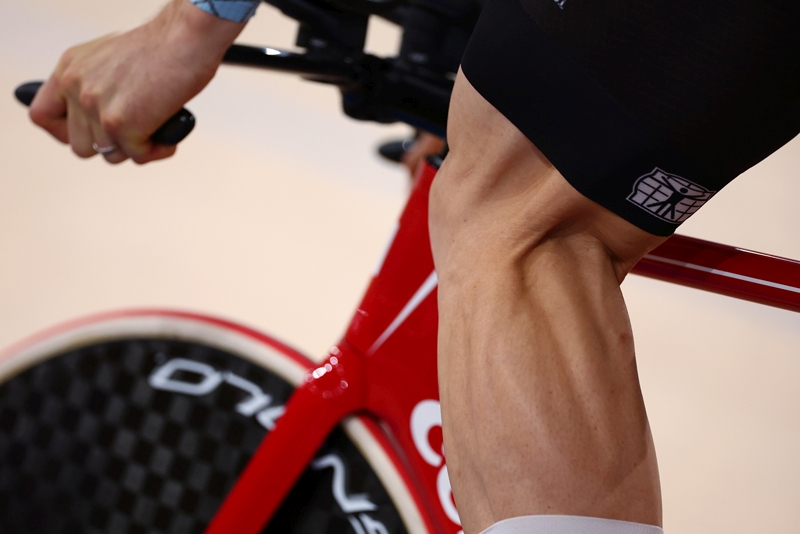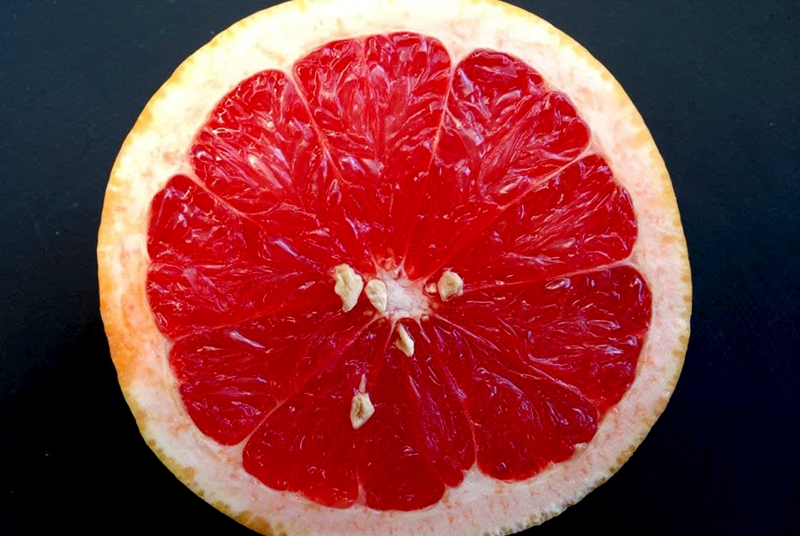You are viewing 1 of your 1 free articles. For unlimited access take a risk-free trial
Sports nutrition: strengthening your immune system
It’s time to lay my cards on the table – I hate the winter. Yes, I know we get the odd sunny, frosty and crisp day where lovers of the great outdoors can enjoy the scenery without hoards of summer tourists. And yes, there are other pleasures too, such as the feeling you get when snuggled up by a log fire with a wee dram on a snowy or frosty night.
But let’s be brutally honest here; the reality of winter is generally very different. Wet, g100my, dark and depressing days are the norm, and when it does snow, the half an inch of muddy-coloured slush that results rapidly brings the transport system to a grinding halt. And just to add injury to insult, there is the dreary assortment of winter illnesses that inevitably do the rounds - coughs, colds, flu, chest infections and even the odd dose of the winter vomiting virus! The good news for those who can’t fly Equator-wards is that while you can’t stop the inevitable progress of planet Earth around the sun, and the onset of winter, you can seriously bolster your immune defences by paying attention to your nutrition.
Why does immunity suffer in the winter?
The first and most obvious question to ask is why coughs, colds and flu (collectively known as upper respiratory tract infections, or URTIs) are rife in the general population during winter, yet almost disappear during the summer months. The answer has a lot to do with the structure of your immune system and the way it interacts with the environment.The immune system
Your immune system is a miraculous defence network whose job is to protect you against the thousands upon thousands of potentially harmful bacteria and viruses that buzz around throughout the year. This system has two main components:- The ‘innate’ immune system – the first line of defence, which is designed to stop invaders from entering the body in the first place. The innate system is made up of physical barriers (eg the skin and epithelial tissues of the lungs, nose and intestinal tract), chemical barriers (eg the high acidity of the stomach, and the fluid secreted by the tear ducts) and cellular barriers (eg phagocytic cells, whose job is to engulf invaders).
- The ‘acquired’ immune system – the second line of defence, employing a large number of different cell types, which not only communicate with each other, but also work in cooperation to help the body recognise and defeat the invaders that have managed to breach the first line of defence. Your acquired immunity is the reason you don’t (usually) have a second bout of the same virus once you’ve recovered from the initial illness. Even when an unfamiliar pathogen breaches your initial defences, a healthy acquired immune system can ensure that any subsequent illness is far shorter in duration and less severe than it would otherwise be.
- Air temperature and central heating – in winter the air is cold and this makes it dry. This tends to dry out the epithelial tissues, which form part of your innate immune system and are especially protective against URTIs. This in turns reduces their efficiency, making an infection more likely. The situation is made even worse by central heating, because cold dry air becomes even drier when warmed. Note too that, contrary to popular belief, exercising outdoors in wet and windy weather is less likely to precipitate an URTI, because wet or damp air is moist and so less drying for the throat and nose than crisp, cold air!
- Air quality – you’ve probably noticed that the weather outside in winter isn’t great! This means that in most homes and offices, the windows are firmly shut, which not only recycles the air, but also the bugs floating around in that air, increasing your risk of exposure to pathogens. If you work in a large office, the chances are that the air-conditioning system will do an excellent job of making sure you get exposed to your fair share of your colleagues’ winter bugs!
- Nutrition – is extremely important for immunity. Unfortunately, the quality of our nutrition often nosedives during the winter months – at the very time it really needs to be optimised! For example, an ample supply of vitamin A is essential for the innate immune system to operate at full capacity. However, in winter, nutrients like vitamin A (found in red, orange and dark green fruits and vegetables) tend to be in shorter supply in the diet because many people consume much smaller quantities of fruits and vegetables, preferring warm, stodgy and comforting foods instead. The same is true of the acquired immune system, which needs an amply supply of a wide range of nutrients to operate at full potential. Any shortfall in just one single nutrient can adversely affect immunity. This explains why your immunity can be used as an excellent barometer of your overall nutrition status. The post-Christmas surge in URTIs is no coincidence either; Christmas is invariably associated with increased alcohol intake (a known immune depressant), less than healthy ‘seasonal fare’ and the all too common stress and fatigue that accompany the season, all of which deplete immunity!
Key nutrients for immunity
OK, given the above facts, what are the basic rules for bolstering immunity during the winter months? I believe that it’s best to divide the advice into two areas:- Day-to-day nutrition – ie, the kind of dietary principles you need to be following everyday regardless of your training routine;
- Exercise nutrition – ie, what you need to think about before, during and after training.
Day-to-day nutrition
The key here is to ensure that your body is amply supplied with all the nutrients required for immune health, which means eating the highest-quality diet possible, ensuring that the bulk of your diet consists of natural, wholesome foods with plenty of fresh fruits and vegetables, and the minimum of junk/fast/processed or sugary/refined foods. Make sure too that your alcohol intake is within recommended limits for health, as too much can result in significant immune depression. The following nutrients and foods are especially important for maintaining maximum immunity:Vitamins
- Vitamin A – well supplied in liver, eggs, all orange and red fruits and vegetables such as carrots, sweet potatoes, apricots.
- Vitamin C – found in citrus fruits such as oranges and grapefruits, kiwis, all the berries, also well supplied in tomatoes and peppers.
- Vitamin D – good sources include eggs, milk, butter, cod liver oil (see box on supplements) and some other fish oils.
- Essential fatty acids (ie omega-3 and omega-6 oils) – good sources include all the fatty fish (trout, sardines, herrings, salmon, mackerel, pilchards, etc) as well as unrefined whole grains and nuts and seeds, especially, hemp, flax, walnuts and pumpkin seeds.
- Zinc – a vital immune nutrient; good sources are high quality, lean cuts of meat and fish and shellfish; also found in whole grains and some nuts and seeds, such as walnuts and pumpkin seeds.
- Selenium – well supplied in unrefined whole grains (eg wholemeal bread), all seafood and some nuts and seeds, especially Brazil nuts.
Post-exercise nutritional strategy
In recent years, a number of studies have shown that low carbohydrate consumption is associated with increased levels of stress hormones and lowered immunity. The reason is that when carbohydrate stores are low, vigorous exercise promotes a process known as catabolism, where body tissue such as muscle is broken down in order to provide energy. Catabolism is associated with higher levels of circulating stress hormones such as adrenaline and cortisol, which have a negative effect on immunity. If you’re prone to winter URTIs therefore, you need to try and ensure that in addition to the general dietary practices above, you keep your carbohydrate levels topped up at all times, so that you’re not training with depleted levels of muscle carbohydrate (glycogen). Here are some guidelines that will help you do just that:- Dietary carbohydrate – Ensure your everyday diet provides an ample supply of carbohydrate at all times, with around 60% or more of calories from carbohydrates (unprocessed, whole grain breads, pasta and cereals, rice, corn, all types of fruits and vegetables, beans, peas and lentils). This is important, even on days when you don’t train, because it’s during these rest days that you really can top up depleted glycogen reserves. If you train in the evenings, make sure you consume sufficient carbohydrate both at breakfast and lunchtime;
- Carbohydrate drinks – For longer (60+ minutes) or more intense training sessions, you should consume 500-1000mls of a 6% carbohydrate drink (around 60 grams of carbohydrate per litre of water) each hour during training. This will help to reduce the extent of carbohydrate depletion during exercise. Recent research suggests that carbohydrate drinks containing small amounts of protein may be even more efficient at reducing muscle breakdown during exercise and these may be worthwhile considering for those seeking maximum protection;
- Diets – Avoid low- or reduced-carbohydrate diets such as the ‘Zone’ or ‘Atkins’ diet; as well as making you feel tired and lethargic when you train, they will do your immune system no favours!
Do supplements help boost immunity?
It’s at this time of year when we’re bombarded with adverts for supplements claiming to boost our immunity, but how many really do what they say on the tin? The answer, unfortunately, is ‘not that many’. The complexity of the immune system is such that there’s no single magic immune-boosting bullet. However, some products have been scientifically investigated and are worth considering (see below). Bear in mind, however, that no amount of supplementation can make up for an inherently poor basic diet!Cod liver oil – It’s been around for ages and now scientific evidence suggests that grandma really did know best after all! Cod liver oil is exceptionally rich in vitamins A and D; we’ve already discussed vitamin A, but new research indicates that vitamin D is a powerful immune stimulant. Indeed, because we can synthesise and store vitamin D in the skin when exposed to spring and summer sunshine, some researchers now believe that this increased level of vitamin D is a major factor in our improved immunity during the summer months. However, it’s important to note that it takes time to accumulate increased levels of D when supplementing and it’s best to begin supplementation during the early autumn for maximum protection.
Vitamin C –The notion that vitamin C might be beneficial for combating URTIs is regarded as a universal truth by much of the general public, but unfortunately the evidence is somewhat mixed; some studies have shown that vitamin C supplementation reduces the incidence of URTIs, while other studies have reported no benefits. On balance, though, the evidence suggests that some modest daily supplementation (around 500mg) is worthwhile.
Multivitamin/mineral – Although it’s important to ensure that the quality of your diet is as high as possible, a daily broad-spectrum multivitamin/mineral can be useful to ensure there are no nutritional shortfalls in the key nutrients required for immunity, and is worth considering, especially if your lifestyle is hectic and eating patterns erratic.
Echinacea – There’s evidence that the popular herb Echinacea, when taken immediately at the onset of a cough or cold, shortens its duration. It’s true that a number of early studies on this herb failed to find any benefit, but it turned out that this was because the products used in the trials contained very little active ingredients. It’s important therefore that if you take it, you use a standardised Echinacea product, rich in active constituents.
Garlic, chilli and ginger – these products have known antiviral and antibacterial effects – great news for curry lovers out there! They can also be used in a number of other dishes.
Probiotics – Foods such as live yoghurt, yoghurt drinks and other fermented products containing ‘friendly’ bacteria (probiotics) have been shown to enhance immunity in those who are physically active, and they are most definitely recommended after antibiotic treatment (which kills all bacteria in the gut, including the friendly bugs). However, we really need more research in this area before we can confidently recommend routine daily use of these products specifically to boost immunity.
Summary
Whether you love or hate winter, coughs, colds and flu are something you’ll most definitely want to avoid. The good news is that while you can’t always manipulate your immediate environment, you can seriously bolster your immune defences courtesy of some simple nutritional guidelines. Even better, these guidelines will also improve your energy levels and promote a sense of wellbeing – even if, like me, you hate winter!Newsletter Sign Up
Testimonials
Dr. Alexandra Fandetti-Robin, Back & Body Chiropractic
Elspeth Cowell MSCh DpodM SRCh HCPC reg
William Hunter, Nuffield Health
Newsletter Sign Up
Coaches Testimonials
Dr. Alexandra Fandetti-Robin, Back & Body Chiropractic
Elspeth Cowell MSCh DpodM SRCh HCPC reg
William Hunter, Nuffield Health
Keep up with latest sports science research and apply it to maximize performance
Today you have the chance to join a group of athletes, and sports coaches/trainers who all have something special in common...
They use the latest research to improve performance for themselves and their clients - both athletes and sports teams - with help from global specialists in the fields of sports science, sports medicine and sports psychology.
They do this by reading Sports Performance Bulletin, an easy-to-digest but serious-minded journal dedicated to high performance sports. SPB offers a wealth of information and insight into the latest research, in an easily-accessible and understood format, along with a wealth of practical recommendations.
*includes 3 coaching manuals
Get Inspired
All the latest techniques and approaches
Sports Performance Bulletin helps dedicated endurance athletes improve their performance. Sense-checking the latest sports science research, and sourcing evidence and case studies to support findings, Sports Performance Bulletin turns proven insights into easily digestible practical advice. Supporting athletes, coaches and professionals who wish to ensure their guidance and programmes are kept right up to date and based on credible science.










